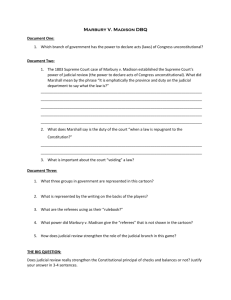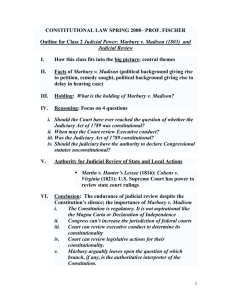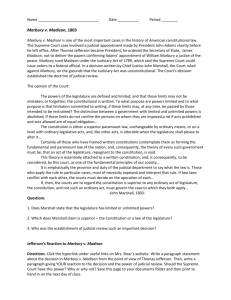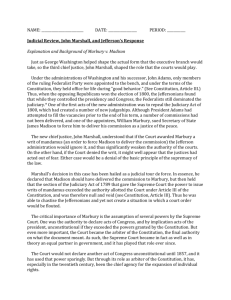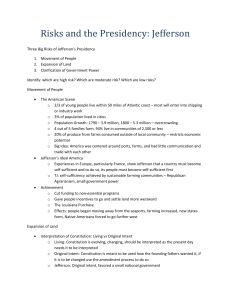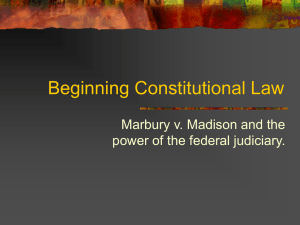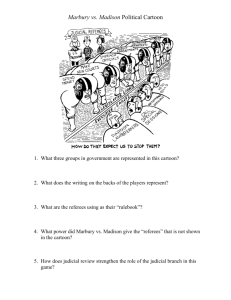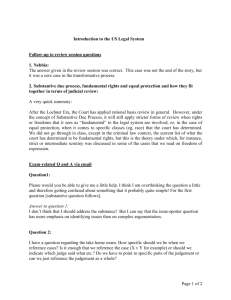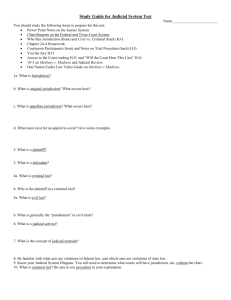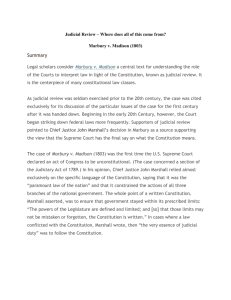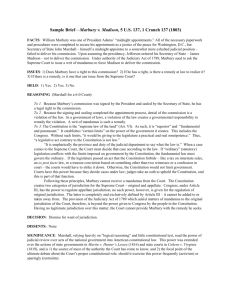Marbury/Madison (223) – Judicial Review
advertisement
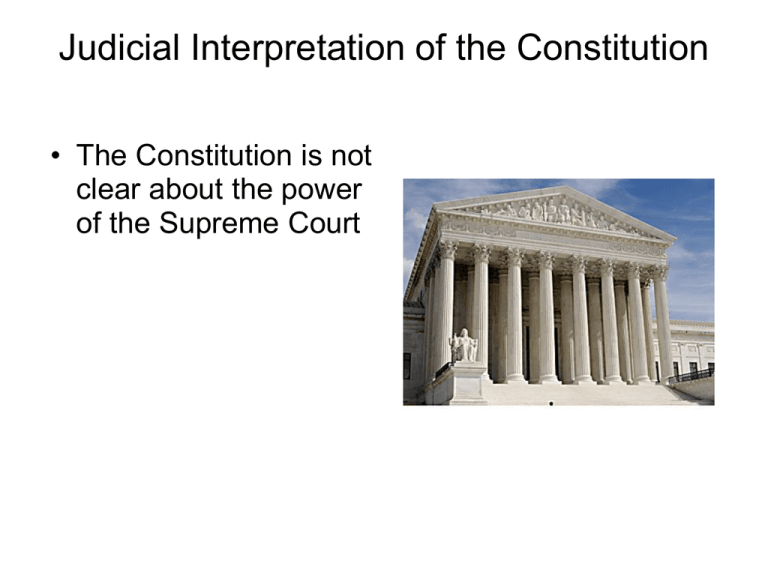
Judicial Interpretation of the Constitution • The Constitution is not clear about the power of the Supreme Court Judicial Interpretation of the Constitution • The strength and path of the court were found with Chief Justice John Marshall • 4th Chief Justice • 1801 – 1835 Judicial Interpretation of the Constitution • During this time, there were three major decisions: • Marbury v Madison • Gibbons v Ogden • McCulloch v Maryland Marbury v Madison • Marbury v Madison • President John Adams, a Federalist, appoints 82 Federalist justices. • (Last day in office!!) Marbury v Madison • “Midnight Judges" • Threat to incoming President Jefferson (a Democrat-Republican) Judicial Review • Jefferson ordered his Secretary of State, James Madison, not to allow William Marbury to take his position. • Marbury was particularly unpopular Judicial Review • Marbury appealed directly to the Supreme Court. Judicial Review • John Marshall: FTW. Judiciary Act of 1801 (passed by Congress) infringed on the Court unconstitutionally! Marbury: No “standing” to S.C. Judicial Review PWNED Marbury Judicial Review The Court was able to rule a law unconstitutional and thus created the important precedent of judicial review. S.C. gets final say!!!
